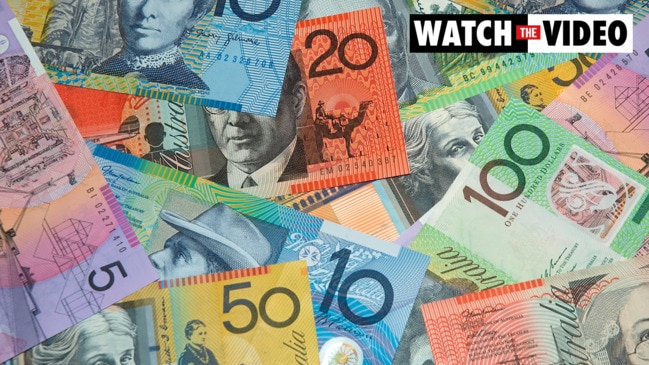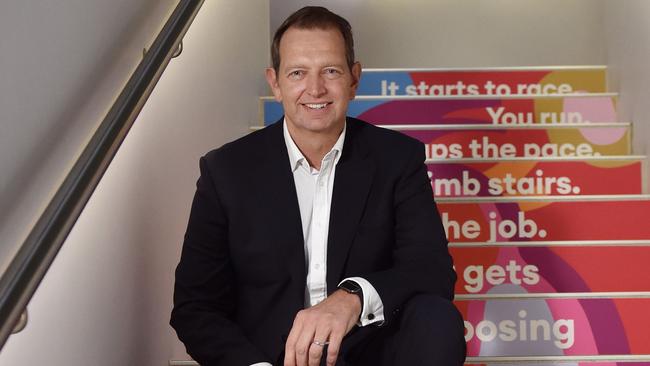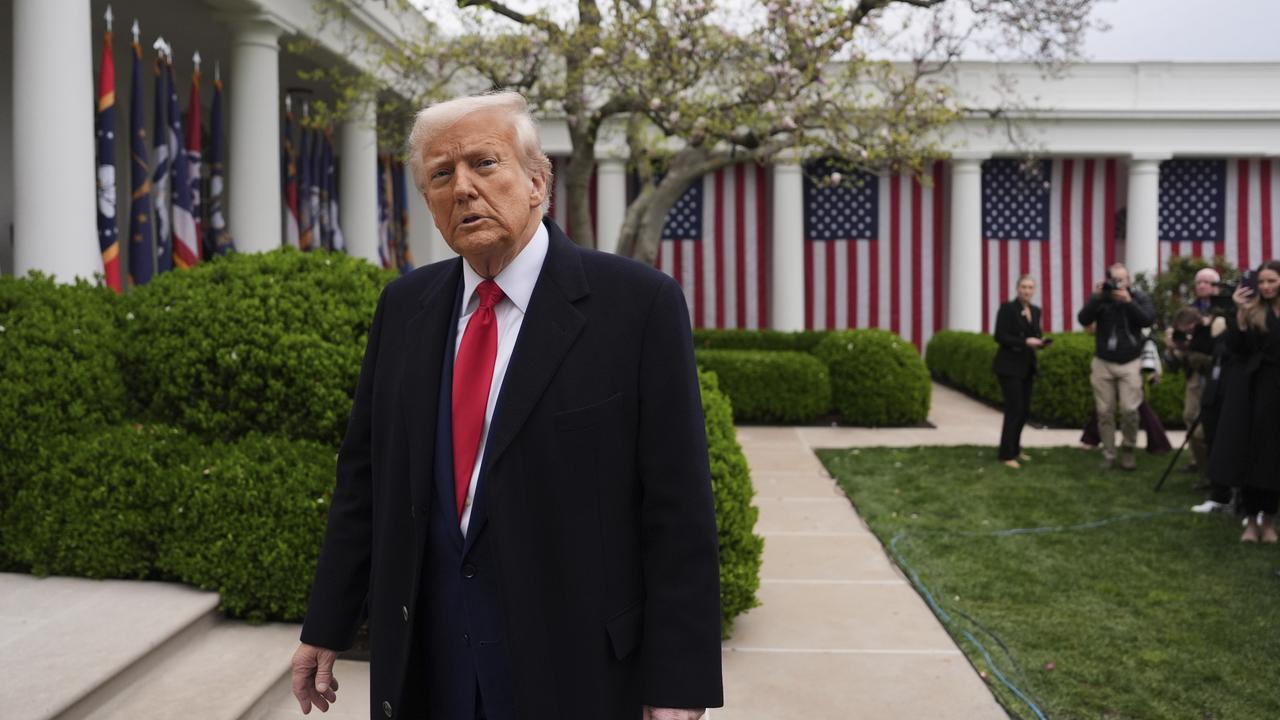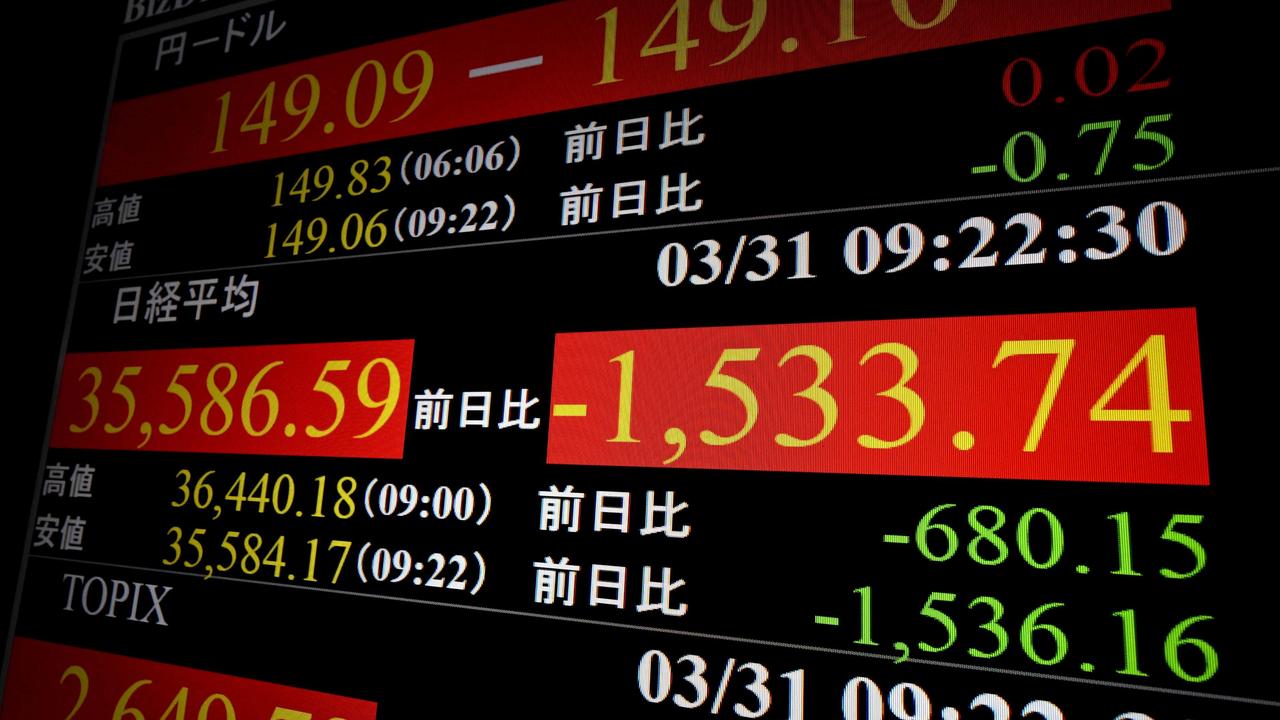Speed up private health reform or risk spiralling premiums, says Medibank CEO David Koczkar
Health insurance premiums are at 20-year lows while participation has rebounded, defying pre-Covid-19 trends. But Medibank’s David Koczkar says the industry can’t grow complacent.

Like lettuce and broccoli, health insurance premiums risk outpacing the rate of inflation in coming years unless Australia’s private health system accelerates a raft of reforms aimed at making care more affordable, Medibank warns.
Australia’s biggest health insurer, valued at $9.78bn, has so far stripped out about $115m in costs from its business in the past five years and is targeting another $35m in savings as part of its efforts to keep premiums low.
But chief executive David Koczkar says the entire sector – insurers, hospitals and doctors – needed to become more united to prevent steep premium hikes and return to thousands of Australians withdrawing from private healthcare.
“The ask of the industry is more than any one business can deliver,” he said.
“The known issues in health can no longer be ignored; our health system is fatigued, and the pace of change is not keeping up with our growing health needs. We are at a critical juncture as we emerge from the pandemic and it’s widely recognised that we all need to move with greater urgency.”
Australians have become used to low health insurance premium rises – or none at all in the pandemic after many insurers froze price hikes – in recent years, with the rate hovering around 3 per cent. This compared with an average premium rise of 5.59 per cent in 2016, which was more than four times the rate of inflation that year.
Higher premium increases triggered an exodus from health insurance, mainly among younger Australians, before the pandemic to the point former Australian Prudential Regulatory Authority executive Geoff Summerhayes warned only three private health insurers would have a sustainable business model by this year.
That prediction did not eventuate as Covid-19 sparked a renewed focus on health and wellbeing and more Australians signed up to private health insurance to dodge lengthy public waiting lists.
For Medibank, it signed on almost 61,000 policyholders in the year to June 30 – a 3.2 per cent increase on the previous year – and recorded its highest customer retention in a decade. Meanwhile, health insurance profit jumped 10 per cent to $592.6m and revenue firmed 2.7 per cent to $6.86bn.
But analysts have warned the sugar hit may not last, and Mr Koczkar said the industry needed to act swiftly on implementing a series of reforms to maintain that trend and stave off 2016-style premium hikes.

“Prostheses is a prime example of how difficult it is to deliver real change to our health system. Despite all the vested interests, there is an agreement from all parties that Australians should no longer pay some of the highest prices in the world for medical devices,” Mr Koczkar said.
“But the devil remains in the detail, and while government remains committed to this reform, vested interests remain. To ensure we can keep premium increases low, we need to maintain a commitment to the process, and a commitment to move with pace.”
More people in private healthcare also means less people in the public system, which Mr Koczkar said is showing signs of significant stress amid ambulance ramping; growing emergency department and elective surgery waiting times, and difficulty accessing mental health care.
“As a nation, we are grappling with how we sustain the quality of life we expect, in a challenging economic environment. We need a health system that is fit for the future.
“But health is lagging other industries in productivity – with the health sector below the national average
“More patients are needing treatment, and our ageing population is increasingly presenting to hospital with complex comorbidities, with around 1 in 2 Australian adults have at least one chronic health condition. The public system’s ability to meet this growing demand is diminishing.”
Ramsay also recognises this and has launched its own ‘hospital in the home’ service to increase affordability but sourcing funding from health insurers is patchy.
Mr Koczkar supports such alternative care models.
“As a nation we only invest around 1 per cent of our budget on prevention. Australia also remains one of the slowest adopters in the OECD of new care settings – that offer more patient choice, minimise unnecessary time in hospital and reduce out-of-pocket costs.
“We helped one in four Medibank customers undergoing a joint replacement to have their rehab at home (this year). We also delivered around 3.5 million virtual health interactions to our customers and the community.
“This year we also continued to grow our investments in health and we more than doubled our no gap network, with 64 per cent of Medibank customers to live within 25km of a no gap site by October.
Overall, Medibank’s group profit fell 10.7 per cent, after volatility in financial markets tipped its investment portfolio into a $24.8m loss compared with a $120m gain last year. Total claims increased 1.9 per cent to $5.7bn.
UBS analyst Scott Russell maintained his buy rating for the company with a $3.90 price target, citing “favourable margin trends continuing post Covid-19”.
“FY23 guidance and commentary is upbeat, with ongoing policy growth (+2.7 per cent) and low claims inflation (2.3 per cent). Headline EPS came in 4 per cent below consensus due to adverse investment experience. Adjusting for this, underlying EPS was 1 per cent ahead and group operating profit 4 per cent ahead,” Mr Russell wrote in a note to investors.
Medibank also returned $682m in so-called ‘Covid-19 savings’ to members which includes a seven month deferral of premium increases.
Medibank will pay a final dividend of 7.3c a share on September 8, taking the total for the 2022 financial year to 13.4c. That’s up 5.5 per cent from last year.
Medibank shares closed 0.9 per cent higher at $3.55 on Thursday.






To join the conversation, please log in. Don't have an account? Register
Join the conversation, you are commenting as Logout